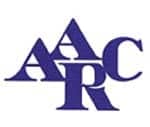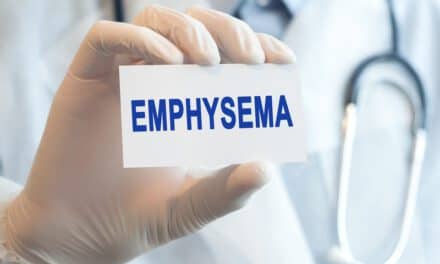Sunovion released positive results from GOLDEN-5, a long-term safety study evaluating Sun-101 (glycopyrrolate), a nebulized, long-acting muscarinic antagonist (LAMA) delivered via investigational nebulizer system (Sun-101/eFlow).
The study results showed that Sun-101/eFlow was well-tolerated as a twice-daily maintenance treatment for bronchoconstriction in people with moderate-to-very severe chronic obstructive pulmonary disease (COPD), with a similar overall incidence of adverse events to standard of care treatment. Results also showed that the incidence of major adverse cardiovascular events (MACE) was similar to the approved active comparator.
“Sunovion has a longstanding history of advancing treatment options for patients with COPD,” said Antony Loebel, MD, executive vice president and chief medical officer at Sunovion. “The results from the GOLDEN-5 study further build on the strong safety and efficacy profile we have seen in our previous Phase 3 studies, and we look forward to advancing Sun-101/eFlow through the regulatory process as the first nebulized LAMA for patient use.”
“As a physician, it is always gratifying when I can tell my patients that there are new treatment options that may help them manage their COPD,” said Nicola Hanania, MD, Associate Professor, Baylor College of Medicine. “If approved, SUN-101/eFlow could be a breakthrough for COPD patients, allowing for delivery of glycopyrrolate via a state-of-the-art device which combines the attributes of nebulizers and hand-held devices.”
The innovative, proprietary eFlow nebulizer system, developed by Pari Pharma GmbH, is a unique closed system delivery device currently in development for the treatment of moderate-to-very severe COPD. It is a portable, hand-held, electronic nebulizer system that uses a vibrating, perforated membrane to generate an inhalable aerosol. The eFlow nebulizer closed system is designed to deliver the entire dose of medication in two to three minutes from a distinctive proprietary drug vial inserted into the device. A standard jet nebulizer typically takes up to 10 minutes. The investigational combined product, consisting of Sun-101 and the eFlow nebulizer closed system, has not been approved by the US FDA for the treatment of COPD.
Sunovion will present data from the GOLDEN-5 study at an upcoming medical meeting. Along with the recently reported Phase 3 efficacy studies GOLDEN-3 and GOLDEN-4, the GOLDEN-5 long-term safety data will support the Sun-101/eFlow New Drug Application (NDA), anticipated for submission to the FDA during 2016.
About the GOLDEN-5 Clinical Trial
GOLDEN (Glycopyrrolate for Obstructive Lung Disease via Electronic Nebulizer)-5 was a Phase 3, 48-week, randomized, open-label, active-controlled, parallel-group, multicenter safety trial designed to evaluate the long term safety and tolerability of Sun-101/eFlow in adults with moderate-to-very severe COPD. The study enrolled 1,087 patients at 111 investigational sites in the United States and Europe. The study evaluated 50 mcg of Sun-101/eFlow delivered twice-daily and active comparator 18 mcg of Spiriva (tiotropium bromide) delivered once-daily by the HandiHaler device. The primary safety endpoints were: the number and percentage of study participants with treatment-emergent adverse events (TEAE), the number and percentage of study participants with treatment-emergent serious adverse events (SAE) and the number and percentage of study participants who discontinued the study due to TEAEs. The secondary endpoints are the mean change from baseline over 48 weeks in trough forced expiratory volume in one second (FEV1) for all subjects and number and percentage of subjects with MACE [NCT02276222].
The study was unique in that it included not only patients who were taking effective background long acting bronchodilator therapy but also patients with very severe disease and co-existing significant cardiovascular illness. Approximately 10% of the population were elderly (>75 years), 65% were classified as being high-risk cardiovascular patients and more than 40 percent were taking long acting bronchodilator therapy.










